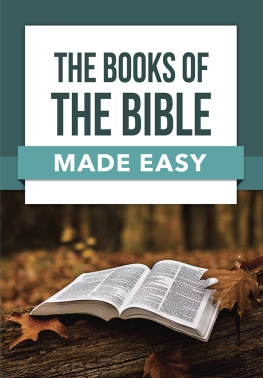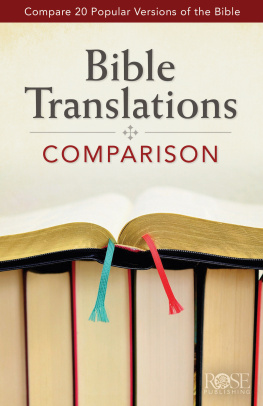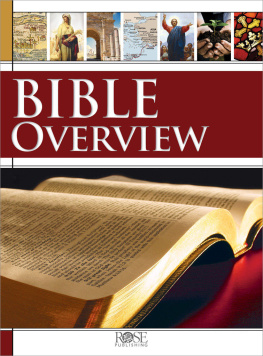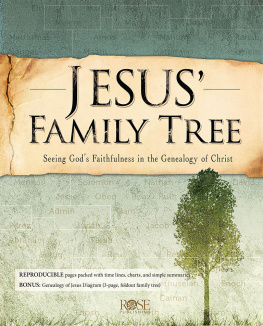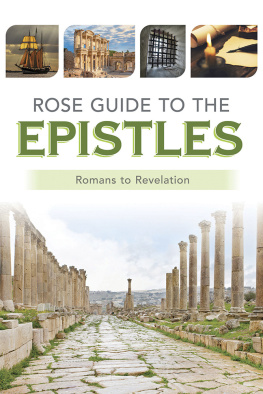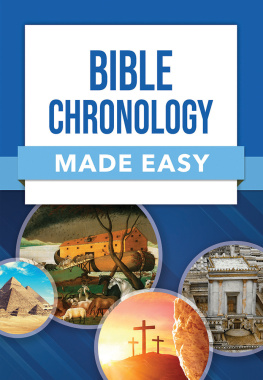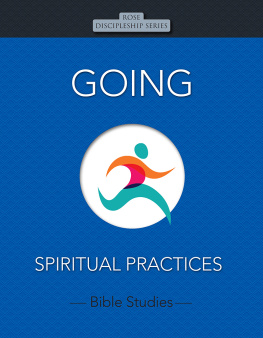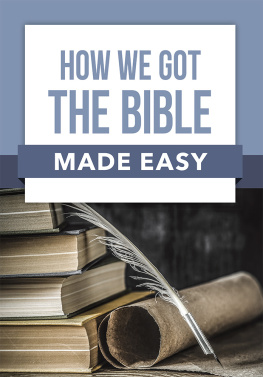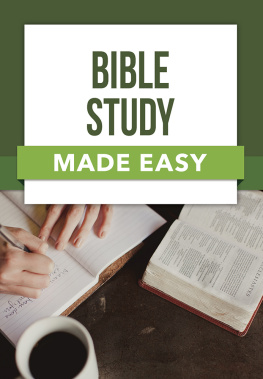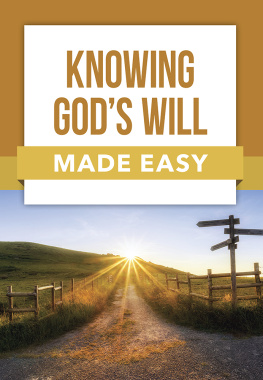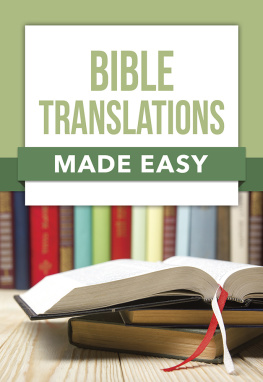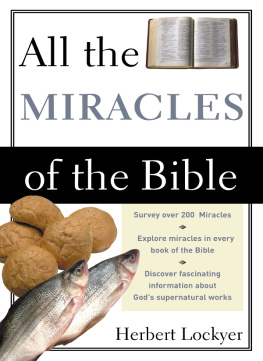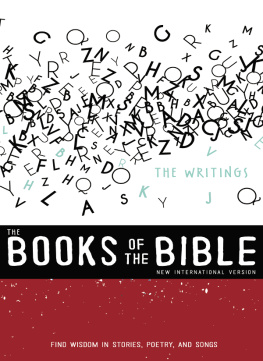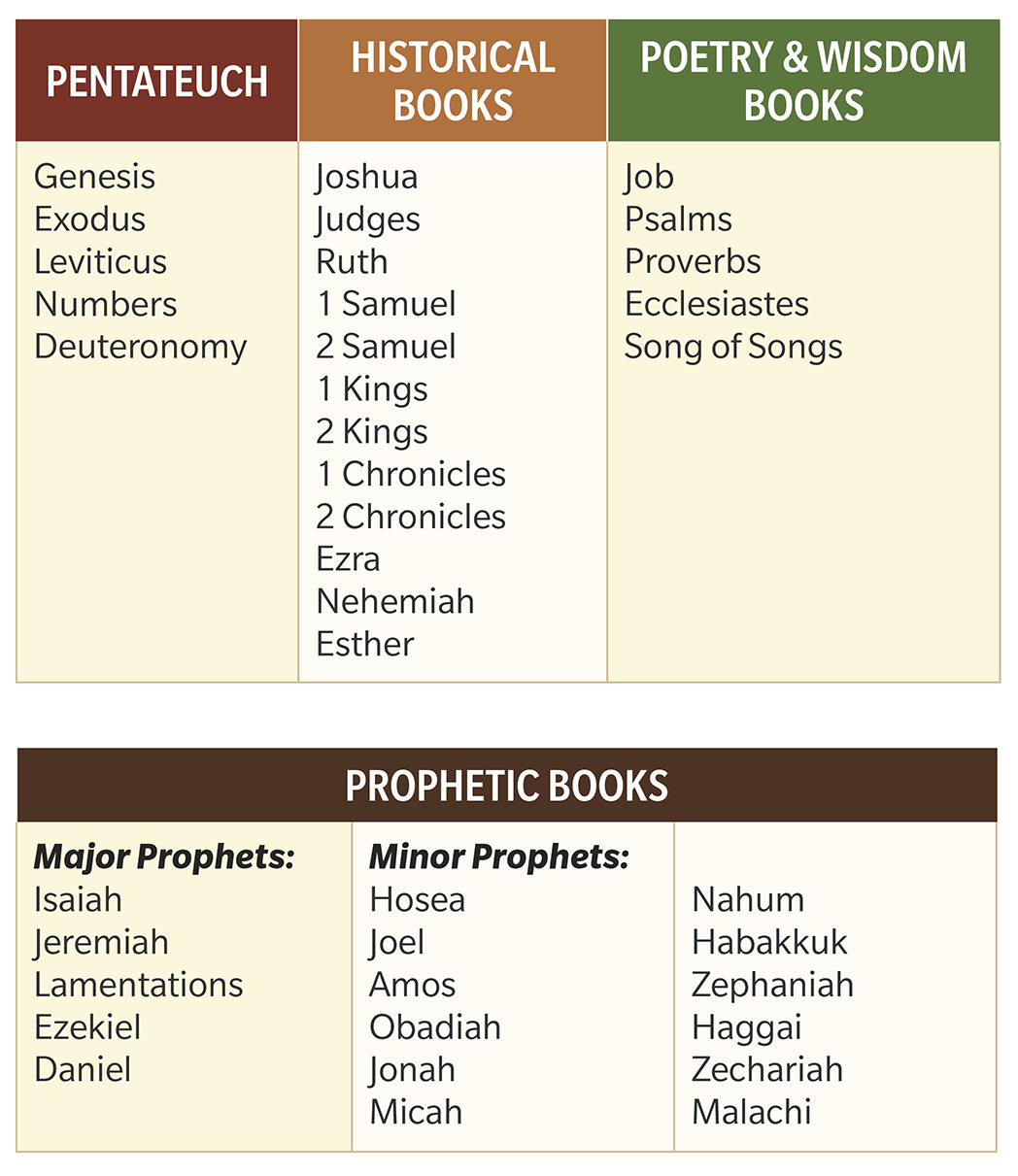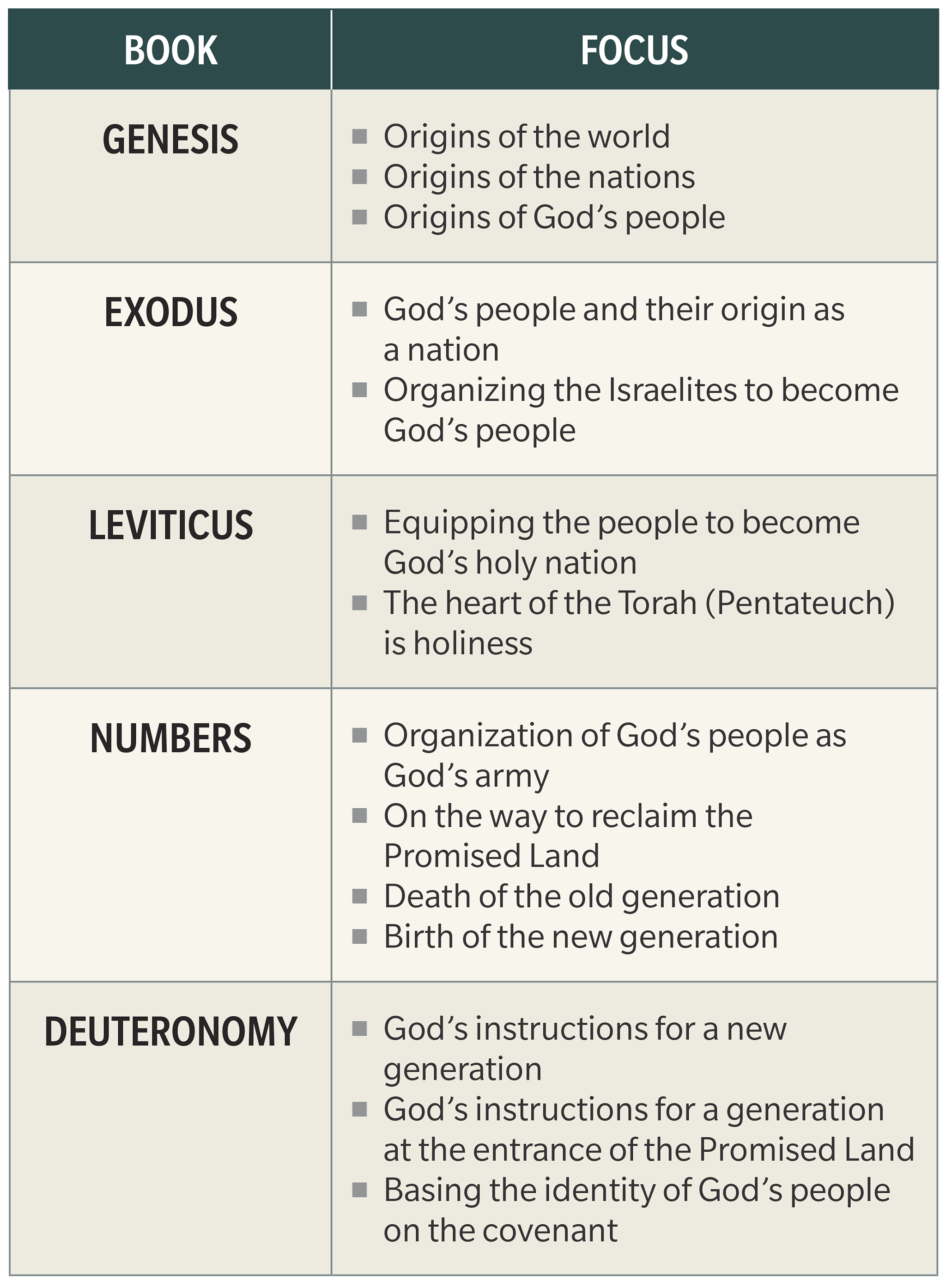The Books of the Bible Made Easy
2018 Rose Publishing, LLC
Rose Publishing, LLC
P.O. Box 3473
Peabody, Massachusetts 01961-3473 USA
www.hendricksonrose.com
All rights reserved. No part of this work may be reproduced or transmitted in any form or by any means, electronic or mechanical, including photocopying, recording, or by any information storage and retrieval system, without permission
in writing from the publisher.
Scriptures taken from the Holy Bible, New International Version, NIV. Copyright 1973, 1978, 1984, 2011 by Biblica, Inc. Used by permission of Zondervan. All rights reserved worldwide. www.zondervan.com The NIV and New International Version are trademarks registered in the United States Patent and Trademark Office by Biblica, Inc.
Cover and layout design by Cristalle Kishi.
Photos provided by Shutterstock.com.
The Old Testament
Books of the Old Testament
The Old Testament is made up of thirty-nine books, divided into four main sections.
Deuteronomy
Moses final sermons
Written c. 14461406 bc by Moses
Purpose To remind those who would enter the Promised Land what God expects from them.
Summary After forty years in the wilderness, the people arrive in Moab at the border of the Promised Land. The book of Deuteronomy is a series of speeches Moses gave on the plains of Moab to challenge the younger generation to find their identity and purpose in their covenant with God.
Outline
- Sermon 1: Journey Review (14)
- Sermon 2: Laws (528)
- Sermon 3: Covenant (2930)
- Farewells and Moses death (3134)
Jesus in Deuteronomy The glory to which we look forward will be revealed when Jesus returns. In the meantime, we continue to train and press toward the goal to win the prize for which God has called me heavenward in Christ Jesus (Philippians 3:14).
Key Verse
Hear, O Israel: The Lord our God, the Lord is one. Love the Lord your God with all your heart and with all your soul and with all your strength. Deuteronomy 6:45
Pentateuch
What Is the Pentateuch?
The Pentateuch is the first five books of the Bible: Genesis, Exodus, Leviticus, Numbers, and Deuteronomy.
- The word Pentateuch comes from a Greek word that means five scrolls.
- In Hebrew, these books are known as the Torah, which means law or instruction.
- It is Gods instructions for a nation learning to be Gods people.
These five books lay the basis for the rest of the Bible. They explain:
- The origin of the universe, of the nations, and of Gods people.
- The need for Gods direct intervention in human historyhuman sin.
- How God acts in the lives of his people.
Main Characters
- God: God is the Pentateuchs central focus. Each story reveals something about God, his character, or how he works.
- Abraham: Abrahams calling shows Gods initiative to rescue humanity from sin and death.
- Israel: God decided to work his plan of salvation in and through Israel, a chosen people.
- Moses: Moses life was bound to the life of Gods people and to God himself.
- The Promised Land: The land is the concrete representation of Gods promises to Abraham. The Israelites relationship with the land becomes a constant theme in the Pentateuch and beyond.
Ancient Middle East
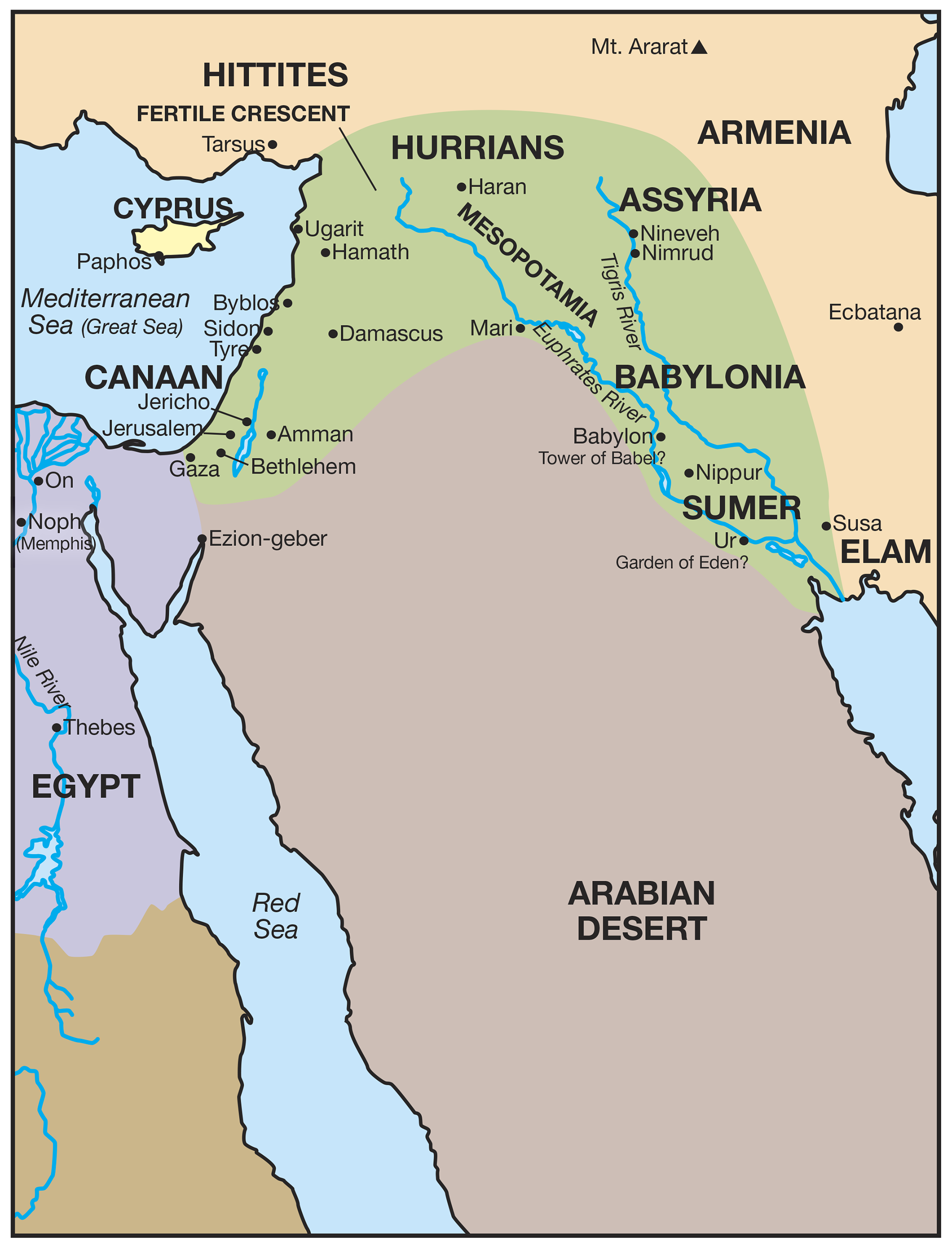
Genesis
The beginnings of creation,
the nations, and the Israelites
Written c. 14461406 bc by Moses
Purpose To show that God is sovereign and loves his creation.
Summary The book of Genesis is a book of origins: the good creation of the world, the start of human problems, and the beginning of Gods solution to those problems. The stories in Genesis reveal deeply broken relationships: separation between God and his creation; rivalries among family members; and violence between people groups. Yet we also see God beginning to restore the brokenness by choosing a familyAbrahams familyand guiding and rescuing them along the way.
Outline
- The beginning of the world (12)
- The beginning of nations (310)
- The beginning of the Israelites (1150)
Jesus in Genesis As a book of origins, Genesis shows the origin of humanitys greatest predicament: sin. It also shows that Gods mercy promised his own solution to this quandary: And I will put enmity between you and the woman, and between your offspring and hers; he will crush your head, and you will strike his heel (Genesis 3:15). Gods promises in Genesis point to his final and perfect solution for humanitys fallen state: Jesus, Gods own Son.
Key Verse
The Lord said to Abraham: I will establish my covenant as an everlasting covenant between me and you and your descendants. Genesis 17:7
Exodus
Gods deliverance of the Israelites from slavery in Egypt
Written c. 14461406 bc by Moses
Purpose To show Gods faithfulness to the covenant and provide Israel with guidelines for holy living.
Summary The book of Exodus tells the story of Gods people moving from bondage to freedom. God chooses a man named Moses to lead the Israelites (Hebrews) out of slavery in Egypt and into the wilderness where they can worship God. The God of Israel proves himself to be the only true God, defeating the false gods of Egypt. At Mt. Sinai, God gives his people instructions on how to live as a community of holy people.
Outline
- Israel in Egypt (115)
- Israel on the way toward Sinai (1518)
- Israel at Sinai (1940)
Jesus in Exodus Moses ministry as judge, priest, and prophet anticipated Jesus own ministry (Hebrews 3:16). The Passover celebration and sacrifice (Exodus 12) help us understand Christs sacrifice on the cross on our behalf. In the exodus, God liberated Israel from the bondage of Pharaoh with great acts of power. Now, God has freed us from the bondage of sin and death with the greatest act of grace and power: Jesus death and resurrection.
Key Verse
God said to Moses, I am who I am. This is what you are to say to the Israelites: I am has sent me to you. Exodus 3:14
Leviticus
Law and sacrifice
Written c. 14461406 bc by Moses
Purpose To instruct Israel on how to be holy and be a blessing to others.
Summary The book of Leviticus teaches the Israelites how to live in the presence of a holy God. It is a detailed list of instructions for priests, purity rituals, and how to make atonement for the peoples sins. The atonement made through sacrifices in Leviticus foreshadows Jesus own sacrifice of himself on the cross that makes atonement for our sins today.
Outline
- Sacrifice (17)
- Priesthood (810)
- Clean and unclean (1115)
- Day of Atonement (16)
- Laws for daily life (1727)
Jesus in Leviticus God instructed his people from the tabernacle. The tabernacle, where Gods presence dwelt, was the place of revelation. In it, God revealed his glory and his will for his people. Christ is Gods perfect revelation (Hebrews 1:12; Colossians 1:15). Jesus himself came to the world as a human to tabernacle (dwell) among us (John 1:14) because he is God. Jesus fulfilled all the requirements of the law (Matthew 5:17), and he was the perfect sacrifice that makes all other sacrifices unnecessary (Hebrews 9:1128).

